Related Research Articles

Antena 1 is a Romanian free-to-air television network owned by the Antena TV Group, part of the Intact Media Group. Its programming consists of television news programs, soap opera shows, football matches, entertainment programmes, movies and television series.
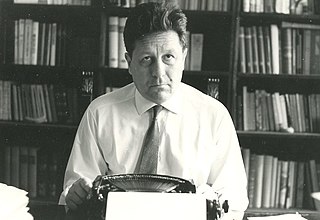
Eugen Barbu was a Romanian modern novelist, short story writer, journalist, and correspondent member of the Romanian Academy. The latter position was vehemently criticized by those who contended that he plagiarized in his novel Incognito and for the anti-Semitic campaigns he initiated in the newspapers Săptămâna and România Mare which he founded and led. He also founded, alongside his disciple Corneliu Vadim Tudor, the nationalist Greater Romania Party (PRM).
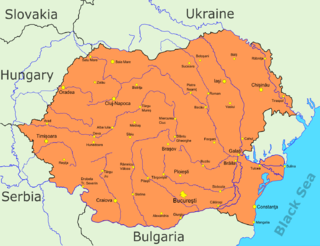
The unification of Moldova and Romania is a popular concept in the two countries that began during the Revolutions of 1989. The Romanian Revolution in 1989 and the independence of Moldova in 1991 further contributed to the development of a movement for the unification of the two Romanian-speaking countries. The question of reunification is recurrent in the public sphere of the two countries, often as a speculation, both as a goal and a danger. Though historically Romanian support for unification was high, a March 2022 survey following the Russian invasion of Ukraine indicated that only 11% of Romania's population supports an immediate union, while over 42% think it is not the right moment.

Dacianism is a Romanian term describing the tendency to ascribe, largely relying on questionable data and subjective interpretation, an idealized past to the country as a whole. While particularly prevalent during the regime of Nicolae Ceaușescu, its origin in Romanian scholarship dates back more than a century.

Mircea Aurel Vulcănescu was a Romanian philosopher, economist, ethics teacher, sociologist, and politician. Undersecretary at the Ministry of Finance from 1941 to 1944 in the Nazi-aligned government of Ion Antonescu, he was arrested in 1946 and convicted as a war criminal.
Mircea Florian, also known as Florian din Transilvania, M. A. N. Florian, and FloriMAN, is a Romanian multi-instrumentalist musician, multimedia artist and computer scientist, based in Germany. Having started his musical career as a folk rock singer, in the late 1960s, he developed a fusion between Romanian folklore and Eastern music, especially Indian sound, moving into psychedelic music. He founded Ceata Melopoică ensemble, with whom he recorded a concept album. These and his solo acts earned him a cult following among rebellious youth, establishing his reputation as one of the most original contributors to Romanian pop music. Florian was also an early member of Cenaclul Flacăra, a traveling music and literature circle, but parted with it when it became increasingly nationalistic.
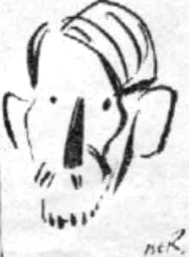
Ion Valentin Anestin was a Romanian graphic artist, engraver, painter, sculptor, journalist and dramatist. Noted as a caricaturist and art critic, he was the father of Ion Nuni Anestin, himself a visual artist and actor.
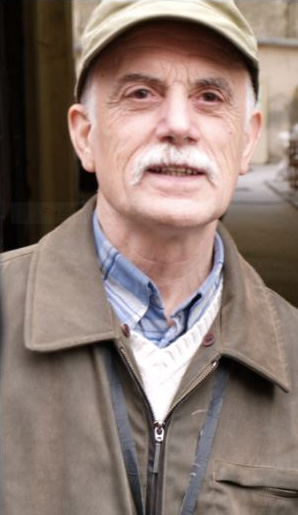
Stere Gulea is a Romanian film director and screenwriter.
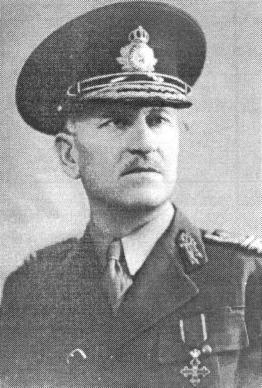
Constantin Constantinescu-Claps was a Romanian general during World War II, in command of the Romanian Fourth Army at the Battle of Stalingrad.

Victor Viorel Ponta is a Romanian jurist and politician, who served as Prime Minister of Romania between his appointment by President Traian Băsescu in May 2012 and his resignation in November 2015. A former member of the Social Democratic Party (PSD) and its leader from 2010 to 2015, he was also joint leader (2012–2014) of the then-governing Social Liberal Union (USL), an alliance with the National Liberal Party (PNL). Ponta was a member of the Romanian Chamber of Deputies for Gorj County from 2004 to 2020. In the Emil Boc cabinet, he was Minister-Delegate for Relations with Parliament from 2008 to 2009.
Iurie Darie was a Romanian actor.

Mihai Șora was a Romanian philosopher and essayist.

The Roșia Montană Protests were a series of protests in 2013 in Bucharest, Cluj-Napoca, Iași and dozens of other cities in Romania and abroad against the Roșia Montană mining project. Protesters said that the mining project would destroy the environment and heritage of Roșia Montană and demanded the withdrawal of a law which would enable this project to commence. In Bucharest, protests were held every evening in the University Square and marches were held each Sunday.
Vera Călin was a Romanian-born American literary critic, literary historian, essayist and translator.
The Fourth Ponta Cabinet was the government of Romania from 17 December 2014 to 17 November 2015. The Cabinet was supported by the Social Democratic Party (PSD), the National Union for the Progress of Romania (UNPR) and the Alliance of Liberals and Democrats (ALDE), the alliance forged by Călin Popescu-Tăriceanu's Liberal Reformist Party (PLR) and Daniel Constantin's Conservative Party (PC). Fourteen of the ministerial portfolios were held by PSD members, three by ALDE, two by UNPR and two by independent members.

The Colectiv nightclub fire was a fire in Bucharest, Romania, on 30 October 2015, which killed 64 people and injured 146. The nightclub fire was caused by a fireworks accident, both being the deadliest in Romanian history. It occurred during a free concert performed by the metalcore band Goodbye to Gravity to celebrate the release of their new album, Mantras of War. The band's pyrotechnics, consisting of sparkler firework candles, ignited the club's flammable polyurethane acoustic foam, and the fire spread rapidly. Most of the victims were poisoned by toxins released from the burning foam. Overwhelmed by the high number of victims, Romanian authorities transferred some of the seriously injured to hospitals in Israel, the Netherlands, Belgium, Austria, the United Kingdom, Norway, Germany and France. Mass protests over the corruption linked to the fire led to the resignation of the Prime Minister of Romania, Victor Ponta.
Events from the year 2018 in Romania.
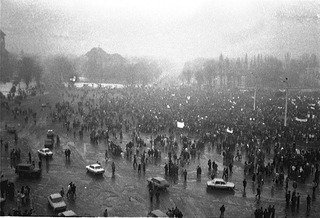
The February 1990 Mineriad was a mineriad that occurred in Bucharest, the capital of Romania. Although it was at first non-violent, the protests later escalated. This Mineriad happened 18–19 February, less than a month after the January 1990 Mineriad. Despite the demonstrators' pleas to non-violence, several persons started throwing stones into the Victoria Palace Government building. Riot police and army forces intervened to restore order, and on the same night, 4,000 miners headed to Bucharest. Opposition leaders and independent media speculated that the demonstration was manipulated by the Securitate and the National Salvation Front. Miners maintained their relative innocence of the violence, claiming that the agitation and most of the brutality was the work of Ion Iliescu's government agents who had infiltrated and disguised themselves as miners.
Sorin Bottez was a Romanian politician who stemmed from the National Liberal Party (PNL). During the post-war period, he was vice-president of the National Liberal Youth.
Events from the year 2022 in Romania.
References
- 1 2 "Alexandrescu, Sorin" (PDF) (in Romanian). Retrieved November 21, 2014.
- ↑ Simut, Ion (2008). "Cronologia exilului literar postbelic (II)" (in Romanian). Romania literara . Retrieved November 21, 2014.
- 1 2 Laurențiu Ungureanu; Anca Vancu; Alina Boghiceanu (28 August 2014), "Adevărul Live. Nepotul lui Mircea Eliade și moștenitorul Brătienilor: "Teama era că Ceaușescu o să trăiască mai mult decât noi"", Adevărul (in Romanian), retrieved 7 September 2014
- ↑ "Sorin Alexandrescu", Pagina oficială a Centrului de Excelență în Studiul Imaginii (in Romanian), retrieved 7 September 2014